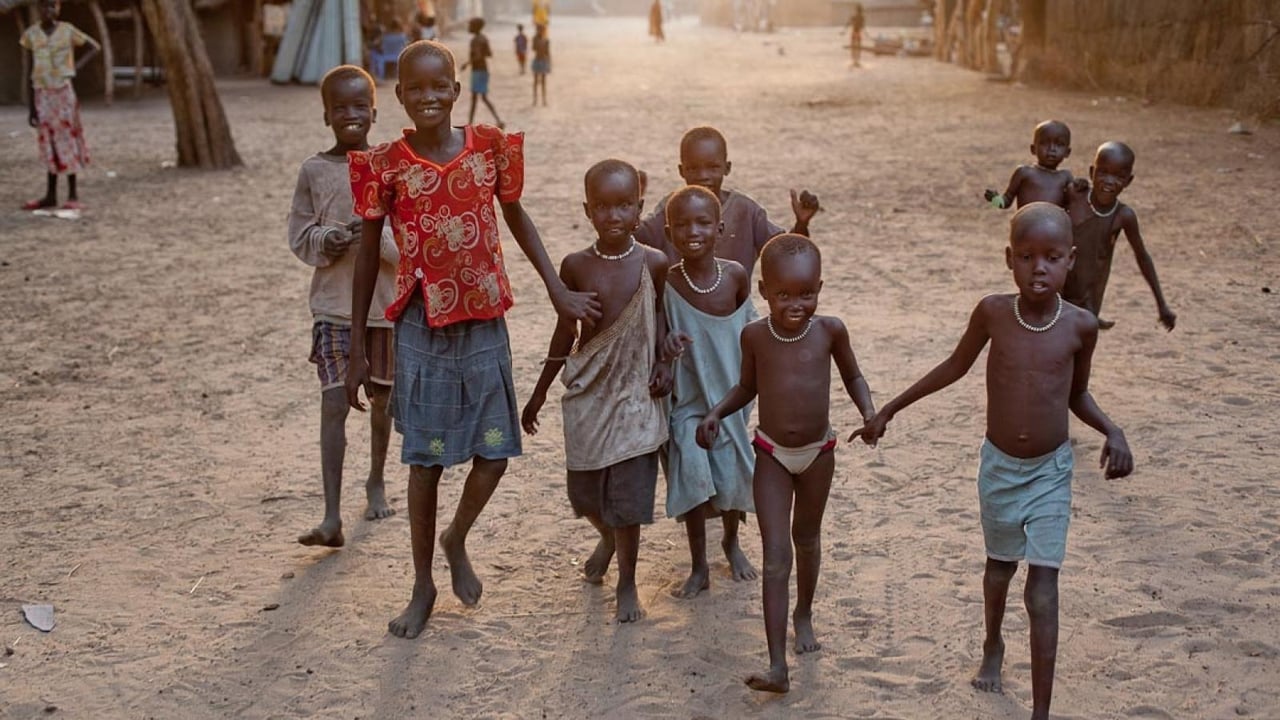

Christopher Quinn has compiled a wonderful documentary about three Lost Boys of the Sudanese Genocide who immigrate to America to find new lives. He cites the history and how they became the lost boys through the systematic genocide in Sudan and how they migrated to refugee camps first in Ethiopia and second in Kenya. While they are there for years, they form unforgettable bonds with each other and rely on each other as family. When they immigrate to the United States settling in Pittsburgh, Pennsylvania and Syracuse, New York, they must make adjustments and adaptation unlike anything before. They appreciate their new lives and the advantages offered to them without complaint about doing any job no matter what it is but they are not without racking guilt for those thousands left behind and for their families whose fate may not be known. Despite it all, you don't see any tears about their situation but just the guilt that they are lucky and they plan to give back to those back home.
... View MoreThe film is about the lives of Lost Boys after they came to U.S.A.. The most of them struggled with the life style in the unfamiliar country, but they eventually got through a tough time and tried to find the way of helping their home country, Sudan. The movie is not only touching but funny, their reaction for the life in the developed country was absolutely worth to watch. and I learned a lot of things from their way of thinking.I assumed the film maker wanted to telll us the difficulities of the Lost Boys after they left their own country and how the situation of Sudan is bad. However the movie got me thinking the other topic, happiness. I vividly remember when one of the Lost Boys felt depressed for his life in U.S.A. and said "When I was in our country, I have a lot of time to talk to family, friends, and even stranger, and we were happy. But in here, U.S.A., everybody just work, work, work, and they don't have enough time of communication." What is the happiness is different among the people, but like he said, it is also true many people in developed country work too hard and forget why they work in the first place.
... View MoreI was delighted to hear that my boy Steve Jean is on the Soundtrack of this picture. They use his Bundu song, a remake of a traditional song. Question is, did the movie makers pay for the song? Hope they did otherwise Mr.Pitt might have a legal issue on his hands. Its nice to see local talent put to use, it would be even better to see it rewarded. We'll just sit and wait. Otherwise can't wait to catch the film. I was delighted to hear that my boy Steve Jean is on the Soundtrack of this picture. They use his Bundu song, a remake of a traditional song. Question is, did the movie makers pay for the song? Hope they did otherwise Mr.Pitt might have a legal issue on his hands. Its nice to see local talent put to use, it would be even better to see it rewarded. We'll just sit and wait. Otherwise can't wait to catch the film.
... View MoreRecently saw a screening of the film. Afterward had the pleasure of meeting and listening to John Dau speak. This film should be shown on TV as well, to enlighten, educate the UNITED STATES, because we can be very ignorant about our knowledge of the outside world.These young boys and men, proved to be so endearing, very bright, hard working people. When one of them commented about someone asking about them living in the forest...he was lovely with his response. For him it was just common sense "No you can not live in the forest, it's impossible" It made me think of what Oprah is currently doing with her school for girls. These young people want the education for the em-betterment of their families and countries. These Lost Boys came here and even though they're putting Ritz Crackers in a coffeemaker w/milk, somehow managed to receive their education (Masters, B.A.).We as a nation, need to really take a serious look at ourselves...and perhaps this film.BRAVO!
... View More